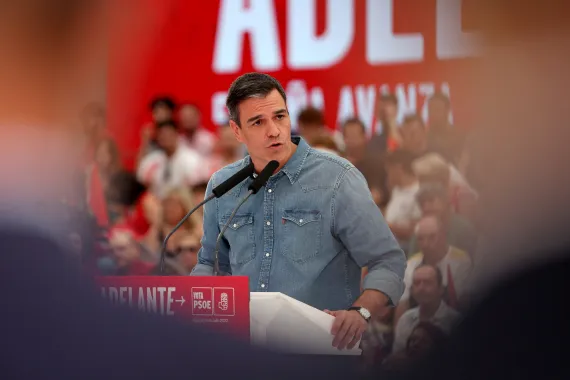In the sweltering heat of a Spanish summer, millions of Spaniards cast their votes in a snap election that has left the nation hanging in the balance. The leader of Spain’s opposition conservative party, Alberto Núñez Feijóo, declared victory, but the cheers at the Socialist camp were just as loud, indicating an inconclusive result.
Feijóo’s Popular Party (PP), even with the support of the far right, fell short of a majority in parliament. As the sun blazed on, voters were compelled to take a break from their holidays, casting their ballots in swimwear and beach gear. Turnout topped 70%, reflecting the significance of the election.
While Feijóo asserted that it was now his duty to try to form a government, Spain faced a period of uncertainty. With Vox, the far-right party, securing 33 seats and PP at 136, they were seven seats shy of an absolute majority in parliament, making another poll likely towards the end of the year.
In contrast, Prime Minister Pedro Sánchez and his Socialist party saw hope in the inconclusive outcome. Sánchez’s controversial decision to call the election had been vindicated, and his far-left allies celebrated the apparent failure of the reactionary bloc.

Throughout the campaign, Sánchez faced criticism from the right for various reforms, and the opposition targeted the concessions he made to Catalan and Basque nationalists, questioning Spain’s territorial unity.
As the night wore on, subdued PP supporters found reason to celebrate when their party overtook the Socialists in the results. However, it felt like an empty victory, as forming a government would require reaching out further for separatist support, which might prove difficult.
The 70% turnout, higher than the previous election in November 2019, highlighted the electorate’s sense of urgency despite the summer heat. Many felt that too much was at stake to miss voting, fearing the rise of extreme-right influence.
The far-right party Vox, led by Santiago Abascal, maintained its position as the third-largest party, but with a significant drop in seat numbers. Vox’s anti-immigration and anti-feminist platform attracted three million voters, but failed to secure a decisive advantage.
The aftermath of the election leaves Spain at a crossroads, seeking unity and stability in the face of uncertainty. With potential future elections looming, political leaders must navigate the complex landscape to find common ground and work towards securing a government that reflects the will of the people.
As the nation awaits the next steps, the only certainty is that Spain’s political landscape remains unpredictable. The fate of the country lies in the hands of its leaders, who must rise above differences to build a path towards a united future for Spain.





